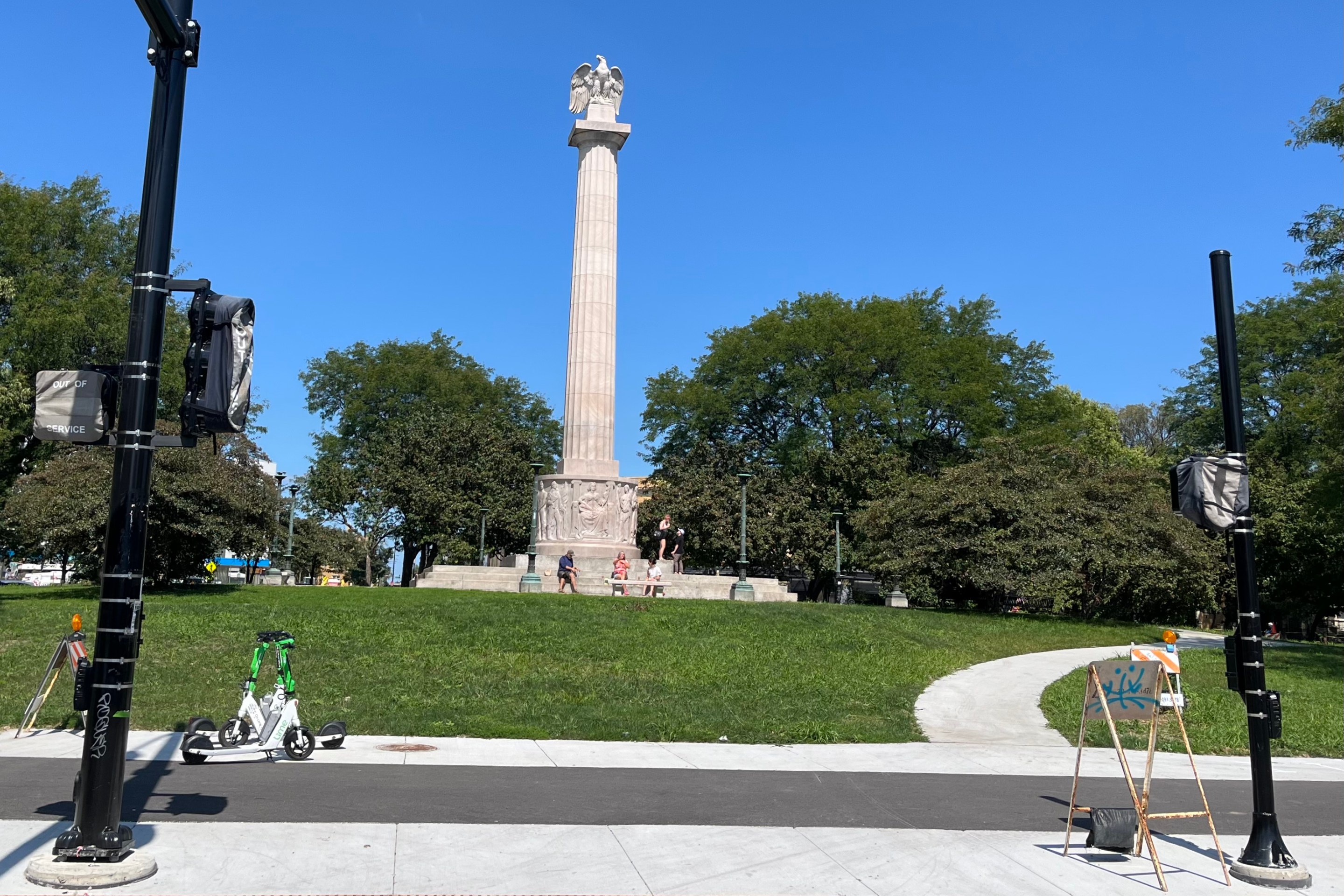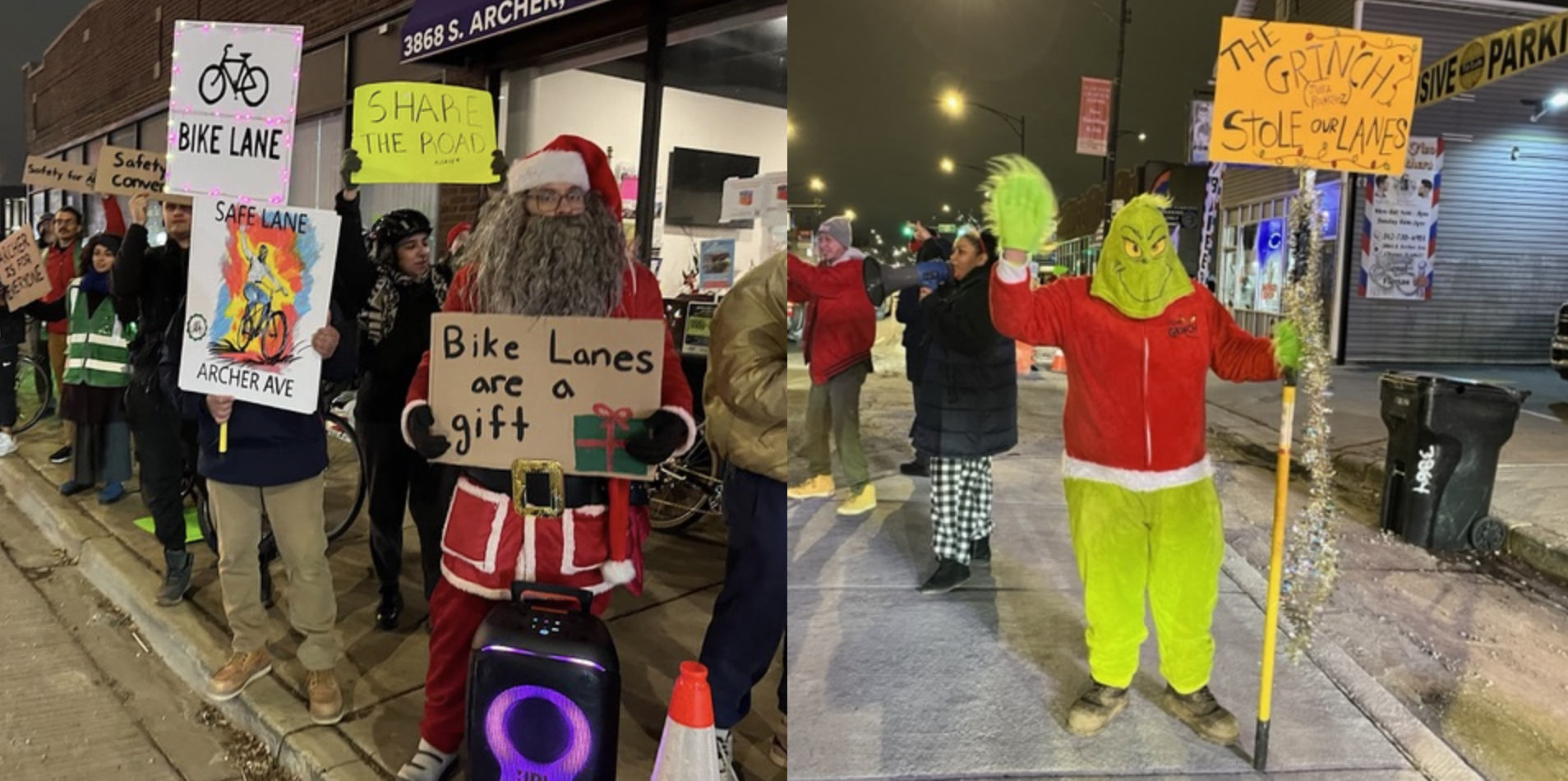About $830 million in federal funds are set aside each year for walking and biking. That's less than 2 percent of total federal transportation spending.

Even this small provision of dedicated funds has been watered down by the GOP-controlled Congress. The current federal transportation law allows states to transfer half their allocation of ped/bike funds to general road projects. Plenty of states choose to spend the full amount, because improvements for walking and biking are cost-effective and popular. But not Wisconsin.
Tom Held at Urban Milwaukee reports that cities and towns in the Cheese State are lining up for funds to complete ped/bike projects, but state officials would rather spend that money on car infrastructure:
In the two-year funding cycle, the Wisconsin Department of Transportation will distribute $15.2 million to provide federal support for 33 projects, or about one-quarter of the amount sought by cities, towns and villages to make their streets safer. Most of the projects selected will begin in 2018, with the others eligible to try again in another two years.
“With $35 million in important and eligible projects and only $15 million in funding available, it’s time for the state to consider cost sharing with the Federal dollars,” said Dave Cieslewicz, executive director of the Wisconsin Bike Fed. “This will be a Bike Fed initiative in the next state budget. It’s an important public health and safety initiative.”
Funding to provide bike and pedestrian paths falls far short of the demand, in part because of decisions made by the Wisconsin Legislature.
Under its directive, WisDOT provides less than half of the $16 million available every year for better walking and biking paths, and instead redirects about $9 million of that pool of money for road projects and other uses.
The Legislature cut deeper into support for non-motorized transportation when it eliminated $1 million in state money previously allocated to the Transportation Alternatives Program.
To put the money Wisconsin is "saving" in perspective, it will cost Wisconsin $250 million per mile to widen I-94 through urban neighborhoods in Milwaukee, a project that local residents and Mayor Tom Barrett fiercely oppose.
Elsewhere on the Network today: Bike Walk KC reports the city has approved a rule to make construction projects less disruptive for pedestrians. Seattle Transit Blog shares a study which found that, on balance, car-share service Car2Go reduces traffic and greenhouse gas emissions. And Greater Greater Washington says proposed service cuts at WMATA will result in some of the most limited hours of operation of any major transit system in the nation.



